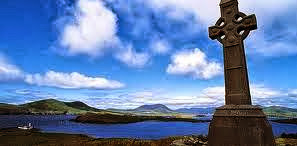The Bible, History, Myth or Both

Gospel illustration from the Book of Kells by 9th century Celtic months, Trinity College, Dublin Popular books and movies, and current religious TV shows, show zealous preachers walking a stage with a big, black book in their hands, allowing it to rest open on one hand while gesturing or pointing to a passage with the other. They draw out often obscure words and phrases, trying to make their point. Back in the day, they were referred to as Bible thumpers. They give you the impression that all wisdom, all knowledge - everything you could ever want to know or learn - is contained in that book. The Reformation, the movement beginning in the 16 th century in which dissidents from Catholicism created Protestantism, codified this view in the doctrine of "sola scriptura" or “scripture only.” That's the doctrine that the Bible contains everything you need to know to be a Christian. The church is secondary at best. Many have qualified this view in light of greate



